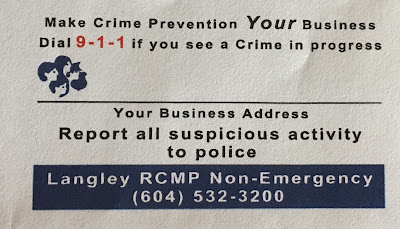Reforming election financing in British Columbia was a front and centre issue during the last provincial election. At the local level, it has been known for several years that there were changes coming for the 2018 municipal election and beyond.
In the past, candidates running in local elections could receive money from a person, corporation, union or other organization. There were no limits to the amount a candidate could receive or spend for an election campaign. For example, a candidate could receive a $20,000 cheque from a corporation or union with no issue.
The known change was setting campaign spending limits based on the size of a community. In Langley City, a mayoral candidate would have a campaign spending limit of around $20,000, and a council candidate would have a campaign spending limit of around $10,000.
Yesterday, the provincial government announced further limits for who and how much can be donated to a candidate for the 2018 and future local government elections. Campaign donations can only be from “individuals who are residents of British Columbia and who are Canadian citizens or permanent residents.” An individual can donate up to $1,200 per year.
From my perspective, these changes will really only impact people running in large municipalities in our province. Based on my last campaign, I won’t be at risk of hitting any of the limits.
I know many candidates self-finance their campaign. Many do this to ensure that they remain truly independent. What remains unclear to me is if a candidate will also be capped to donating $1,200 per year to their own campaign.
I fully support both limiting the amount of money that a candidate can spend during an election campaign, and ensuring that only British Columbians can donate to a candidate. I am a bit concerned about what it means for people that choose to self-finance their campaign. Over the coming months, I’m hoping the provincial government will add more clarity around self-financing.



















